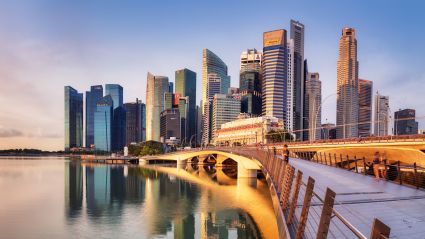
In a world ablaze with escalating temperatures, ferocious wildfires, and unprecedented deluges, the gravity of our climate crisis has surged to an unassailable crescendo this year. The prediction that July 2023 could become the hottest month in 120,000 years, combined with United Nations Secretary-General Antonio Guterres’ stark warning that we are entering an era of “global boiling,” is a powerful wake-up call.
The good news is that existing technologies, coupled with adequate climate finance, could potentially reduce up to 65 percent of the emissions needed to achieve the United Nations (UN) net-zero target by 2050, according to a BCG report. Private investment is essential to bridge the remaining 35 percent gap in capital required over the next three decades.
Thematic Pillars
Two of GGV Capital’s investment themes are particularly relevant for tackling the climate crisis: Food Systems and Sustainability, and Energy Transition and Green Transportation. By directing investments into the advancement of novel technologies and approaches that unlock innovative methods for emission reduction, we actively contribute to accelerating the world’s transition toward a net-zero future.
Food Systems and Sustainability
Agriculture, forestry, and land use contribute to 13–21 percent of global greenhouse gas emissions, largely stemming from food production, according to the UN. Sustainable food production offers a promising avenue to address environmental concerns linked to inefficient animal farming and food production practices.
We champion innovative solutions like Bowery Farming, the largest vertical farming enterprise in the US. Based in New York City, the company employs its proprietary operating system, the BoweryOS, to power its smart farms, resulting in a 95 percent reduction in water consumption and a 45 percent decrease in plastic usage compared to traditional agriculture. Bowery’s brand has been in the market since 2016 and is sold in over 1,800 locations, including Whole Foods, Ahold Delhaize, Amazon, Safeway, and Walmart.
Furthermore, ventures such as Oatside, Singapore’s pioneering oat milk company that is now available in 15 markets across Asia and the Middle East, play a crucial role in reducing society’s dependence on animal-based milk. Oatside’s regional production approach shortens the supply chain and significantly lowers its carbon footprint. Oat milk emerges as a naturally more sustainable alternative to dairy, generating lower carbon emissions and consuming fewer land and water resources.
An example of our commitment to finding sustainable sources is Seattle-based Shelf Engine, a startup utilizing machine learning to assist food retailers in overcoming the challenge of food waste. Additionally, Shelf Engine guarantees the sale of all items by repurchasing unsold products, resulting in a 32 percent reduction in food waste and diverting 1 million pounds of discarded material from landfills.
We hope to mitigate the consequences of climate change and build a resilient world.
Energy Transition and Green Transportation
Gasoline vehicles account for approximately 15–20 percent of the total global carbon dioxide (CO2) emissions. The transition to electric vehicles (EV) and cleaner energy sources plays a crucial role in reducing this percentage and addressing the environmental impact of gasoline-powered transportation.
Our portfolio companies in this area included one of China’s top EV companies, XPENG, whose Smart EVs delivered in 2022 will reduce carbon emissions by approximately 1.72 million metric tons over their entire life cycle, compared to conventional gasoline vehicles.
Since its founding in 2014, NIU, a portfolio that makes high-performance electric motorcycles, mopeds, bicycles, and kick-scooters, has powered 10 billion kilometers traveled by 2 million people from 48 countries. That is the equivalent of preventing 2.5 billion kilograms of CO2 pollution.
Besides the great shift towards electric modes of transportation, it is equally important for us to maximize the efficiency of energy. Singapore-based Resync, for example, is an intelligent energy management platform for smart cities and systems with distributed energy sources such as wind energy, solar power, batteries, and gensets (engine–generator sets). It has more than 200 buildings on its platform, connecting 2,000+ Internet of Things assets.
Walk the Talk
While many companies do not produce physical products like factories or power plants, operations can still contribute to a significant carbon footprint due to various activities, such as office energy consumption, data centers, business travel, and investment decisions.
One action toward reducing carbon footprints is to conduct a comprehensive energy audit of facilities to identify areas of high energy consumption and opportunities for improvement. These actions can yield positive results; an independent carbon accounting analysis, for example, reveals that GGV's absolute emissions are significantly lower than those of financial companies of similar size.
This serves as just a starting point; the challenges posed by climate change continue to escalate and we have a long way to go. Together, we hope to make a substantial impact in mitigating the consequences of climate change and building a resilient world.












